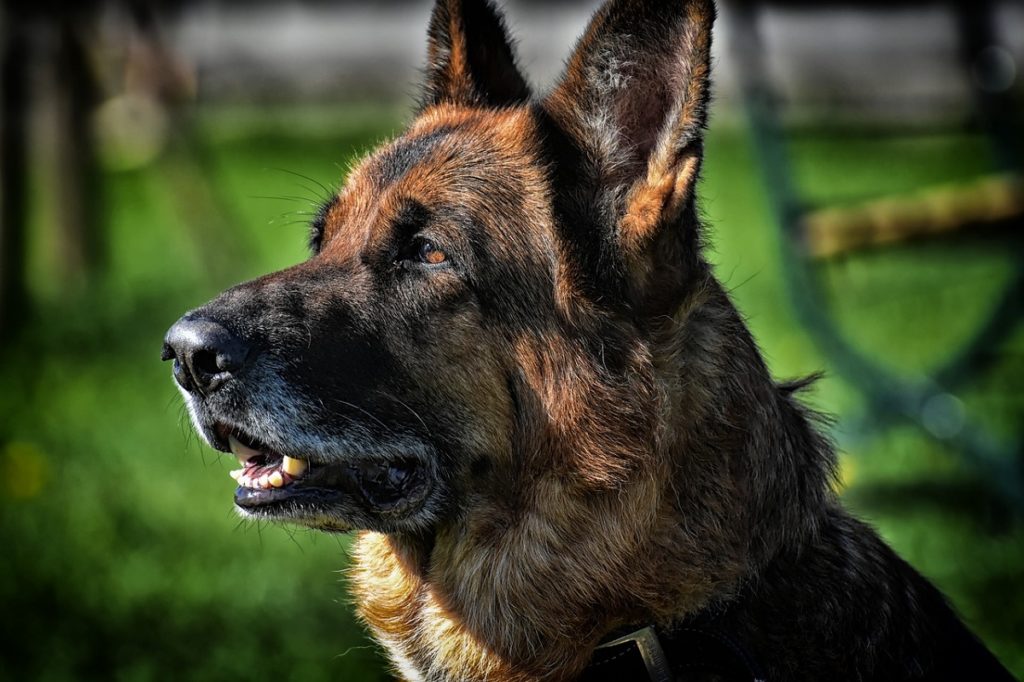This post will give you everything you need to know about the complex and toxic relationship between onions and dogs, including what makes onions a major no-no for canines, what will happen to your dog if he happens to ingest an onion, and what action you should take should such an instance occur. In most cases, it’s important to take your dog to the vet as soon as possible.
Is It Bad If My Dog Ate Onions?
Dogs can actually get sick from both raw and cooked onions. And the harm an onion can cause a canine goes well beyond bad breath — it can even be life-threatening.
The agent in onions that is toxic to dogs is known as N-propyl disulfide or thiosulfate. This is a compound that causes a breakdown of red blood cells because dogs do not have the enzyme needed to digest this substance. This can lead to anemia in dogs, among other potential canine health problems.
More specifically, the toxic portion of an onion can cause damage to your dog’s red blood cells by attaching to the oxygen-transporting protein, called hemoglobin, in your dog’s red blood cells. This will reduce the red blood cells’ ability to carry oxygen throughout the animal, and will also trick your dog’s body into thinking that the blood cell is an invader. This triggers a process known as hemolysis, which will destroy the red blood cell and result in hemolytic anemia.
When hemoglobin is oxidized, it will form clumps called Heinz bodies. These Heinz bodies cannot carry oxygen, and will cause the red blood cells to carry oxygen less efficiently.
What Part of an Onion is Toxic to Dogs?
No specific part of an onion carries the toxin that is harmful to dogs — they’re in the whole thing! Onion Toxicosis can occur from ingestion of:
- Onion flesh
- Onion juice
- Onion leaves
- Processed onion powder
This means that onions can cause harm to dogs if they are consumed even after they are cooked, fried, or powdered.

Onion powder is also in a surprisingly wide range of human foods, and it doesn’t take a lot of onion to get a dog sick. For example, a 45-pound dog would only need to eat one medium raw onion to experience dangerous levels of toxicity. It’s difficult to keep a watchful eye on a dog at all times when food is out, but it is especially important if onions are involved.
Similar Foods That Can Also Be Harmful
Actually, all other foods in the allium family are also harmful, including:
- Garlic
- Scallions
- Shallots
- Leeks
- Chives
These foods are also harmful to dogs as they contain the same toxin. Be extra cautious if your dogs eat Onion and garlic powders; they are actually even more potent than fresh onions, which is dangerous news because they are found in so many human foods. Always check the labels of any foods you give your dog to make sure no onion or garlic powders are included.
How Much Onion Does it Take to Make a Dog Sick?
There are many factors that determine how much onion it will take to cause problems in your dog, including the amount ingested, the dog’s size, and other biological factors. Generally, if your dog eats a small number of onions, he will probably be fine. However, if he frequently consumes onions it can lead to dog health issues.
If the dog consumes a large number of onions at one time, your canine may suddenly develop anemia for the following days. Consumption of small amounts over a duration of time can cause a gradual development of anemia.
The onions consumed also do not have to be raw to cause harm. They can be dehydrated in soups, fried in onion rings, or prepared in any other way. Much like garlic powder, onion powder in baby food has been known to cause a rash of onion poisoning, as small children often let dogs eat their food or leave it lying around for their dog to find.
Symptoms of Onion Toxicity in Dogs
Symptoms you should look out for include:
- General canine weakness
- Red urine
- Decreased appetite
- Decreased stamina
- Pale or bluish gums (especially with exercise)
- Fainting
- Vomiting
- Elevated heart rate
Onion toxicity is not a common cause of the last three symptoms but could be the culprit if you know or suspect your dog has gotten into some onions recently.
Onion ingestion in dogs can also lead to:
- Liver damage
- Canine asthma attacks
- Allergic reactions
- Diarrhea
- Anemia
- Dermatitis
- Overall weakness
Many of the signs and symptoms listed above are actually caused by Heinz Body Anemia, or Hemolytic anemia. This is a condition that is brought on by the destruction of the dog’s red blood cells, which leads to a decrease in his red blood cell count, causing anemia.
The symptoms a dog experiences will depend on the number of onions it has consumed, its size, and the time period in which the onions were ingested. Consuming a large quantity of onions in a single sitting is actually less dangerous than eating a small number over a long period of time. This is important to remember if you are someone who likes to feed your dog from the table, as many foods people eat contain at least a small number of onion powder in them. Make sure you read your food labels carefully so you aren’t unintentionally poisoning your dog.
It’s also important to note that symptoms typically won’t appear for a few days after the dog has consumed the onions, and it may be safe to monitor your pet, however, if a large number of onions are mysteriously missing, you should bring your dog in to see your veterinarian just in case.
Likewise, if you know for sure that your dog has consumed a large amount of onions, it’s best to take your dog to your veterinarian immediately. Your vet will diagnose your dog’s condition based on his symptoms and blood work and may induce vomiting or give your dog a solution that will help decrease the absorption of the onions in the blood. Getting your dog into the vet quickly may help spare you some costly medical bills that are associated with overnight stays and monitoring should your dog’s onion toxicity reach dangerous levels.
How is Onion Poisoning Diagnosed?
It’s certainly easiest for your veterinarian to make a diagnosis if you know that your dog has ingested onions or a product that contains onions. If your dog is already showcasing symptoms like lethargy and weakness, then a low red blood cell count will likely be visible on a blood test. This can help indicate how severe the problem is as well.
Hemoglobin forms clumps on your dog’s red blood cells, which makes them not carry oxygen as well. When your veterinarian views your dog’s blood sample under a microscope, a dog with onion toxicity will showcase the telltale sign of these little clumps, which appear purple on the red blood cells. Other health conditions can cause these symptoms, but if it is suspected that the dog consumed onions, this will often be enough for a diagnosis.
Other times, your veterinarian will also conduct a urinalysis to see if there are high levels of hemoglobin in the urine. Heinz body anemia may also be visible in a blood smear examination even before the condition has caused a drop in the dog’s red blood cell count.
Other times, you may have to check your dog’s stool for undigested pieces of onion or analyze his vomit if he has become nauseous. Your veterinarian may also ask you what foods you regularly give your dog, and have you check the labels for a list of ingredients.
What to do if your Dog Eats Onions

If you see your dog eating onions or suspect that your dog has eaten them, your best course of action is to seek immediate veterinary care, especially if your dog seems like he isn’t feeling well or is tired and weak. Your vet will evaluate your dog and take the proper course of action.
Once at your vet, treatment will depend on when your dog consumed the onions. If it was just before you brought your dog into the vet, your veterinarian will usually induce vomiting to flush out your dog’s stomach. They may also use activated charcoal to treat the poisoning as well as potential allergic reactions.
Activated charcoal reduces absorption of the onions in the gastrointestinal tract. After this initial course of treatment, your vet may also bathe and dry your dog to prevent the risk of skin infection. You may also need to monitor your dog for a set time period and make sure your dog stays hydrated.
In cases where the dog is more seriously ill and anemia has set in, the veterinarian will give the dog fluid into his bloodstream, treat any present liver damage, and call for blood transfusions if necessary. Some dogs may require supplemental oxygen to make up for the reduced circulation of red blood cells in their body. Sometimes this will require your dog to be kept overnight or longer.
Once you are able to take your dog home, your veterinarian will tell you how to monitor your dog, outlining specific signs of anemia for you to look for over the coming days.
Since onion toxicity can be fatal in severe cases, it is best to get your dog to the veterinarian as soon as you suspect something is wrong.
Healthy Vegetables for Dogs
While onions and other vegetables in the allium family can be toxic to dogs, there are many other safe human food options your dog is sure to love. Kale, spinach, broccoli, carrots, beets, and sweet potatoes are all great examples you can supplement with traditional dog food to help keep your dog healthy for years to come.
Long-term Outlook for Dogs with Onion Poisoning
While severe poisoning can be fatal, especially if left without treatment, dogs with mild cases of onion toxicity will make a full recovery in short order. You will simply need to continue to monitor your dog for symptoms and make sure he is unable to ingest any more onions.
Sources:
- Burke, Anna. “Can Dogs Eat Onions?” American Kennel Club, 2017. Accessed 12 Sept. 2019. https://www.akc.org/expert-advice/nutrition/can-dogs-eat-onions/
- Lowrey, Sassafrass. “Can Dogs Eat Onions? If Your Dog Ate Onions, What Do You Do?” Dogster, 2018. Accessed 12 Sept. 2019. https://www.dogster.com/dog-food/can-dogs-eat-onions-what-if-your-dog-ate-onions
- Yin, Sophia. “Onions and Dogs, A Lethal Combination.” Cattledog Publishing, 2009. Accessed 12 Sept. 2019. https://drsophiayin.com/blog/entry/onions_the_secret_killer/
Canna-Pet aims to provide accurate and up-to-date information to help our readers make informed decisions regarding their pet health. This article was written based upon trusted scientific research studies and/or articles and was written and reviewed by certified professionals. Credible information sources for this article are cited and hyperlinked.



